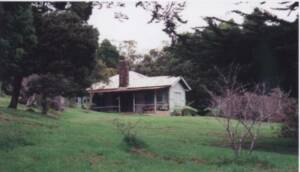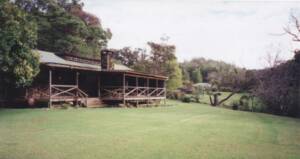N/A
Built
N/A
On December 31, 2006, the current leases for 114 recreation residences at Koke‘e and Waimea Canyon State Parks will expire. The issuing of new leases in this case is subject to historic preservation review (Section 6E-8, HRS, and Chapter 13-275, HAR) because approximately 92 of these buildings (i.e., 81%) were built over 50 years ago and their continued use under new lease agreements could affect significant historic properties. HHF concurs with the finding of the Department of State Parks that the recreation residences are collectively significant as a historic district, with over 75 of the cabins considered contributing structures.
Project Description
The 114 recreation residences being considered for lease in 2007 are grouped in three distinct clusters of lots called the Pu`u ka Pele, Halemanu, and the Koke`e Camp Lots. These three camp lots encompass a total of 135 lots that were established between 1918 and 1951 specifically as a recreational retreat in the cool uplands for those able to escape the hot summers along the coast. Construction of the existing cabins began in the 1920s and continued through the 1990s. The 48 recreation residences in the Kokee Camp Lots and the 14 residences in the Halemanu Camp Lots are located within Kokee State Park. The 43 residences at the Pu`u ka Pele Camp Lots fall within Waimea Canyon State Park. When combined, the 135 lots have a total acreage of 133 acres.
The Department of State Parks is considering options for leasing the lots, either through auction, direct negotiation or lottery. A master lease could be issued to encompass all or a major portion of the recreation residence lots, allowing the structures and associated infrastructure to be managed privately as a single entity. Alternatively, the State could lease each residence and lot individually, as has been the case in the past. In either scenario, leases could be issued through public auction or potentially under section 171-36.2, HRS, which allows the Board of Land and Natural Resources to negotiate the lease of public lands directly for the purpose of historic preservation and restoration projects.
Historic Hawai‘i Foundation Policy
HHF advocates for commitments to avoid and mitigate the potential effects of long-term leases on the historic recreational residences. These conditions are intended to preserve the historic integrity and rustic character of these residences and of the three camp lots.
1. Contributing structures found to be eligible for the State Register of Historic Places historic district (categories 4, 5 and some 3) should not be removed or demolished. Applications for Conservation District Use Applications (CDUA) to remove or demolish these structures should be denied. HHF requests review of CDUA applications for concurrence with determinations of impact on historic properties.
2. The eligible historic district, including both contributing and non-contributing structures, should be officially designated on the State Register of Historic Places.
3. Prior to assigning leases, State Parks should prepare a detailed preservation plan outlining steps to be taken to mitigate the potential adverse effects of the long-term leases on the historic district and those residences considered contributing properties. The plan should focus on the preservation, rehabilitation, and restoration of the contributing buildings and mechanisms to avoid changes to vacant lots or non-contributing residences that could compromise the integrity of the historic district. The plan should include design standards or guidelines governing the repair, maintenance, or alteration of the contributing and non-contributing buildings within a historic district and the construction of any new buildings or improvements within that district. The preservation plan should also include a strong implementation strategy to address maintenance responsibilities, standards and funding.
4. Adherence to the design standards and the defined approval process should be made a binding condition on all lease agreements for recreation residences at Koke‘e, Halemanu, and Pu‘u ka Pele. These commitments should be incorporated in the lease agreements as covenants or as special terms and conditions. Failure to comply with these conditions or violation of the preservation plan should result in assessment of additional civil and/or criminal penalties as provided for by law, as well as revocation of the lease.
5. HHF does not take a position on the most appropriate method for assignment of the leases, as this issue is separate from developing appropriate protection measures for the integrity of the historic properties. However, no new leases should be assigned until the preservation plan is complete and compliance with it made a binding condition of the lease agreements.
For Additional Information about Historic Hawaii Foundation’s Policy, please contact us at HHF or call (808)523-2900.



